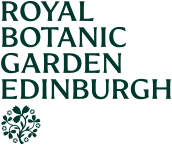Dear all
We will be hosting a symposium at the Living Data conference jointly with the OpenDS group (see the symposium abstract at the foot of this e-mail). We are submitting a presentation to provide an update on the current status of MIDS and
would like to invite members of the TDWG MIDS task group to add their names as authors, recognising the work that you have done to get us to this point. Please add your names to the table in the abstract doc (https://docs.google.com/document/d/1aZmz4tVahZ4LwkXnMmh8EQH9MdbZ5kXZeH50PFgW-H4/edit?tab=t.0)
making sure that you provide information for all headings in bold which are required. Please also feel free to add comments and suggestions to the draft abstract.
We will be submitting the abstract by the 19th May so please add your name and make any suggestions before then. A copy of the abstract as it stands is below.
Thanks again for all your input to help us achieve our current milestone of the MIDS website – and a massive thank you to Ben who has constructed the website. Please have a look and try it out (https://tdwg.github.io/mids/index.html).
You can provide feedback using the GitHub issue
https://github.com/tdwg/mids/issues/148.
Best wishes
Elspeth and Cat
TDWG MIDS Task Group conveners
Draft Abstract:
What is the status of global digitisation? MIDS as an institutional & global digitisation standard
The digitisation of the world’s natural science collections is expanding massively and providing a unique global resource for answering some of the most fundamental bio- and geodiversity questions. However, digitisation at this scale can
only be done in stages. The ability to measure and monitor the level of digitisation of each individual specimen, each collection within each country on a global scale has never been more important. The Minimum Information about a Digital Specimen (MIDS) specification
along with the implementations which can calculate the MIDS score of specimens and collections, provide users with tools to help develop a digitisation strategy as well as plan, manage and monitor a digitisation programme, including prioritisation and data
enhancement.
The MIDS website (https://tdwg.github.io/mids/) provides access to the current draft, as well as links to tools for users to calculate MIDS scores for DWC and ABCD datasets, including the MIDS Calculator (https://github.com/AgentschapPlantentuinMeise/MIDSCalculator).
Joint symposium abstract
The open Digital Specimen (openDS) framework provides a standardized data model for digitally representing physical specimens and derived data, enabling seamless data sharing, integration, and reuse across global research infrastructures.
This session will present key aspects of the openDS data model, highlighting its role in supporting the FAIR principles (Findable, Accessible, Interoperable, Reusable), persistent identifiers and biodiversity information standards.
A walkthrough and demonstration of the practical implementation of the openDS data model will be provided. The session will cover the integration of controlled vocabularies via a dedicated Vocabulary Server, ensuring semantic consistency
and interoperability. Attendees will gain insights into how openDS can be leveraged for robust, scalable, and interoperable specimen data management, fostering a globally connected digital specimen network.
The session will also present the Minimum Information about a Digital Specimen (MIDS) specification. The digitisation of the world’s natural science collections is expanding massively and providing a unique global resource for answering
some of the most fundamental bio- and geodiversity questions. The ability to measure and monitor the level of digitisation of each individual specimen, in each collection within each country has never been more important. MIDS, along with the implementations
to calculate the MIDS score of specimens and collections, provides users with tools to help develop a digitisation strategy, and plan and manage a digitisation programme, including prioritisation and data enhancement.
The session will show how MIDS, Darwin Core and ABCD (Access to Biological Collection Data) standards align with openDS, facilitating compatibility with existing biodiversity and earth science data infrastructures.
By addressing vocabulary semantics and their role in data harmonization, this session will highlight the importance of standardized terminology in earth and natural sciences.
|
|
Dr Elspeth Haston |
@emhaston | Google Scholar |
https://orcid.org/0000-0001-9144-2848
Search our Herbarium collections online at
http://data.rbge.org.uk/herb
